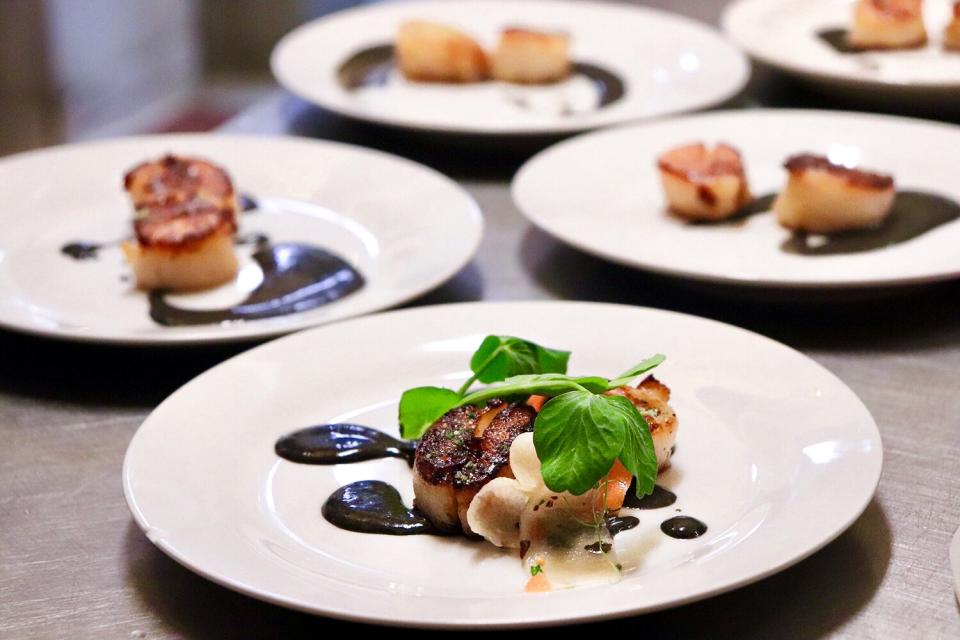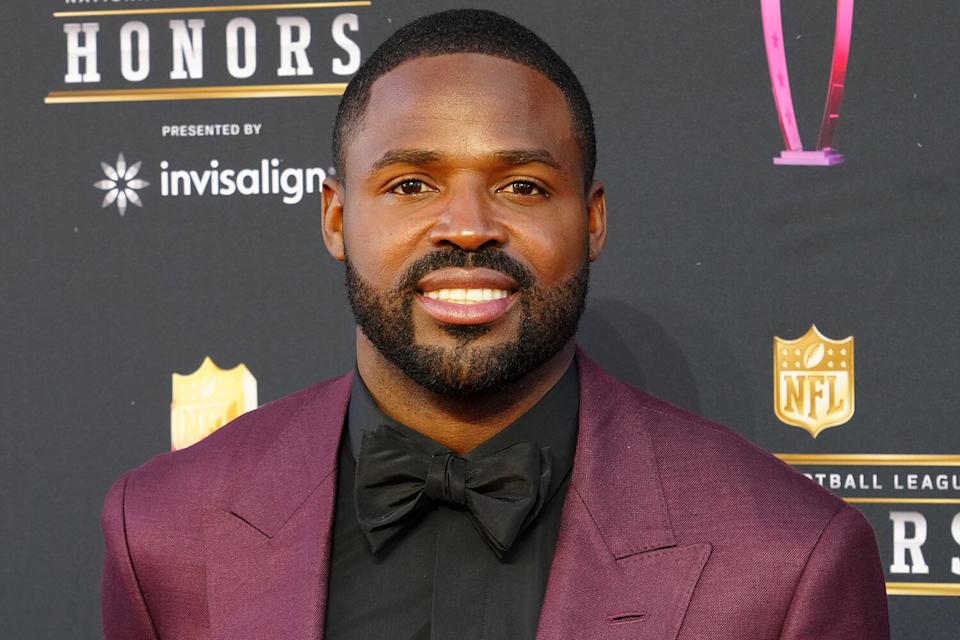NFL Stars Speak Out Against 'Rookie Dinner' Tradition That Can Cost New Players Up to $55,000

Getty
Players in the National Football League are divided on the concept of a "rookie dinner" — a long-held tradition in the league where a new player can pay an exuberant amount of money to treat his teammates to a meal.
In a new piece in the New York Times, the publication takes a deeper look at the tradition, which may cost newly-drafted players upwards of $55,000, like Dez Bryant had to pay to feed his Cowboys teammates in 2010 at Pappas Bros. Steakhouse. Other instances of rookie dinners include D'Andre Walker of the Tennessee Titans paying over $10,000 for a team dinner at Jeff Ruby's Steakhouse in Nashville in 2019, or when Deebo Samuel took care of a $3,700 bill for his San Francisco 49ers teammates in 2019.
"This dinner sets a precedent for a lifestyle that the majority of players cannot afford to do and shouldn't be living anyway," former NFL player Torrey Smith said in a recent interview, per the Times.
RELATED: Tom Brady Shares Cute Moments With His Kids During Buccaneers' Home Opener
Smith decided to speak out after he saw a clip from "The Pivot" podcast of Jets player Garrett Wilson learning about the dinners' cost. Smith also spoke out about rookie dinners on Twitter in June, writing that players "come into the league with no financial literacy and real problems but folks think 50k dinners are cool."

Jeff Kravitz/FilmMagic
Smith's former teammate Anquan Boldin also added that he saw rookie dinners as wasteful. "As opposed to guys going out and spending $50,000 to $75,000 on dinner, I just felt like dudes would be better served going out and helping their mom instead," Boldin said.
These dinners mostly take place at high-end steakhouses before each NFL season, with veteran players sometimes intentionally ordering the most expensive items on the menu, according to the Times. Ryan Clark, cohost of "The Pivot," argued that vets usually try to look out for rookies at the dinners, as players on the Giants did when he joined in 2002, offering to split the bill with him.
The dinner bills can be split by multiple players if there are multiple rookies playing one position, and first-round picks usually have to cough up more money given that they'll be starting with a higher salary. Clark compared the dinners to fraternity pledging, and said it is something that's passed down as a tradition.
"I did it, and you are going to do it," he said, "and because you did it, you are going to make another rookie do it."
RELATED: Bill Belichick 'Couldn't Stop Saying How Good' Former Patriot Vince Wilfork Looks After Weight Loss
Channing Crowder, a former linebacker for the Miami Dolphins, said he paid a hefty bill in his rookie season, comparing it to "putting your pads on before practice." Also a co-host of the podcast, Crowder argued that a rookie dinner "isn't putting nobody in the poor house."
During his 2005 rookie dinner, he paid roughly $30,000, which equated to about 5 percent of his starting salary of $588,000 for part of the season. One player even ordered two bottles of the pricey cognac, Louis XIII.
"If I have to spend $30,000 on a dinner for my O.G.s, Vonnie Holliday, Kevin Carter, all the guys I watched growing up," Crowder said. "It wasn't that big of a deal."
Never miss a story — sign up for PEOPLE's free daily newsletter to stay up to date on the best of what PEOPLE has to offer, from juicy celebrity news to compelling human interest stories.
Houston restaurant owner James McGhee told the Times that bills range from $5,000 to about $25,000. But even the lower end may be excessive for some. Greg Hopkins, who is in charge of the Changing the Community nonprofit, said some of his NFL trainees don't have much financial experience.
"For rookies coming in, especially if you are not as high-drafted, you should not even be thinking about spending that type of money," he said.

 Yahoo Sports
Yahoo Sports 